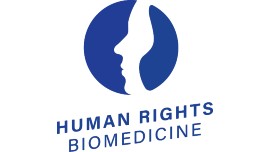Interview of Dr Mark Bale
How do you see the role of the Council of Europe and in particular of the DH-BIO in addressing those issues ? What could be the main challenges in this process ? Do you see a synergy between the protection of human rights and the promotion of developments in the biomedical field ?
Context: You have participated in the debate organised by the Committee on Social Affairs, Health and Sustainable Development focusing on genome editing technologies. The latter are part of a broader set of emerging technologies which are potential sources of important progress for the benefit of human health in particular. But their possible misuse and abuse are also source of concerns and raise human rights challenges. Identifying those challenges was the objective of the conference organised by the Committee on Bioethics (DH-BIO) that you are chairing, in May 2015 under the auspices of the Belgian Chairmanship of the Committee of Ministers.
Q: How do you see the role of the Council of Europe and in particular of the DH-BIO in addressing those issues ? What could be the main challenges in this process ? Do you see a synergy between the protection of human rights and the promotion of developments in the biomedical field ?
A: There are many areas where scientific and technological progress raise ethical issues. Equally there are areas of routine healthcare and medical research that need to respect the fundamental tenets of human rights and bioethics – especially the respect for person’s autonomy and privacy. However there is sometimes a belief that incorporating these principles will slow down progress or deny patients life sustaining treatments. We need to be alert to this mis-perception. To build trust in healthcare and research we need to address the human rights challenges raised by certain scientific and technological developments. It means considering the needs of the patients, benefiting from the knowledge and expertise of professionals and taking into account the interests of the public. If we can do this across the Council of Europe member states and promote appropriate legislation then all can benefit from the advances in biomedicine and healthcare.
How does the DH-BIO define priorities to be addressed? What are the main objectives for the next biennium?
Context: The DH-BIO is currently working on different issues: protection of the rights of persons with mental disorder, research on biological materials of human origin, prohibition of the commercialisation of human organ and tissues as such, processing of health related data for insurance purposes, emerging technologies, etc.
Q: How does the DH-BIO define priorities to be addressed? What are the main objectives for the next biennium?
A: The Oviedo Convention and its protocols largely define the work programme. There are always areas where the provisions are in need of review because of technological development or because of identified gaps in key areas. When we have identified the priorities we need to be clear on how this fits with the priorities of the Council of Europe and about the necessary resources to review a topic. The next biennium gives examples of both of these aspects. We will begin to develop a White Paper on the human rights implications of emerging and converging technologies. By this we mean the development of implantable devices, external brain-computer interfaces and “Big Data” that will have potential important benefits to people but which are not without risks to autonomy and privacy. We also need to review the Protocol on Biomedical Research to monitor developments in this evolving field. On top of this we are likely to have to address urgent topics prompted by scientific breakthroughs or public concerns about possible human rights implications of new developments. Recent examples of this would be in commercialisation of organs, in gene editing and in sex selection.
How do you see the role of the intergovernmental work around the Convention in the future?
Context: The Convention on Human Rights and Biomedicine was adopted in 1997. Since then national and international human rights case law relevant to the biomedical field, in particular from the European Court on Human Rights has developed substantially, using the Oviedo Convention as a reference.
Q: How do you see the role of the intergovernmental work around the Convention in the future?
A: The case law that has emerged in the area of human rights and biomedicine in the last 15 years is increasingly relevant to the Bioethics Committee. It shows how national courts are applying the fundamental principles in the Oviedo Convention and protocols to difficult real life situations faced by people across the Member States. It will help us to extrapolate the current legal instruments into new areas that were not explored at the time of drafting. It also helps to identify areas of training for national institutions, healthcare and legal professionals and for public awareness. We have an active programme called DEBRA which seeks to build knowledge of the Oviedo Convention in countries who are rapidly developing capacity in biomedical research and advanced healthcare in particular. Two important priorities for the work of the DH-BIO in the next biennium will aim at facilitating implementation of principles based on the analysis of existing case law and developing training tools for legal professionals and others in the area of human rights and biomedicine. I think it will be an interesting and mutually beneficial partnership.



